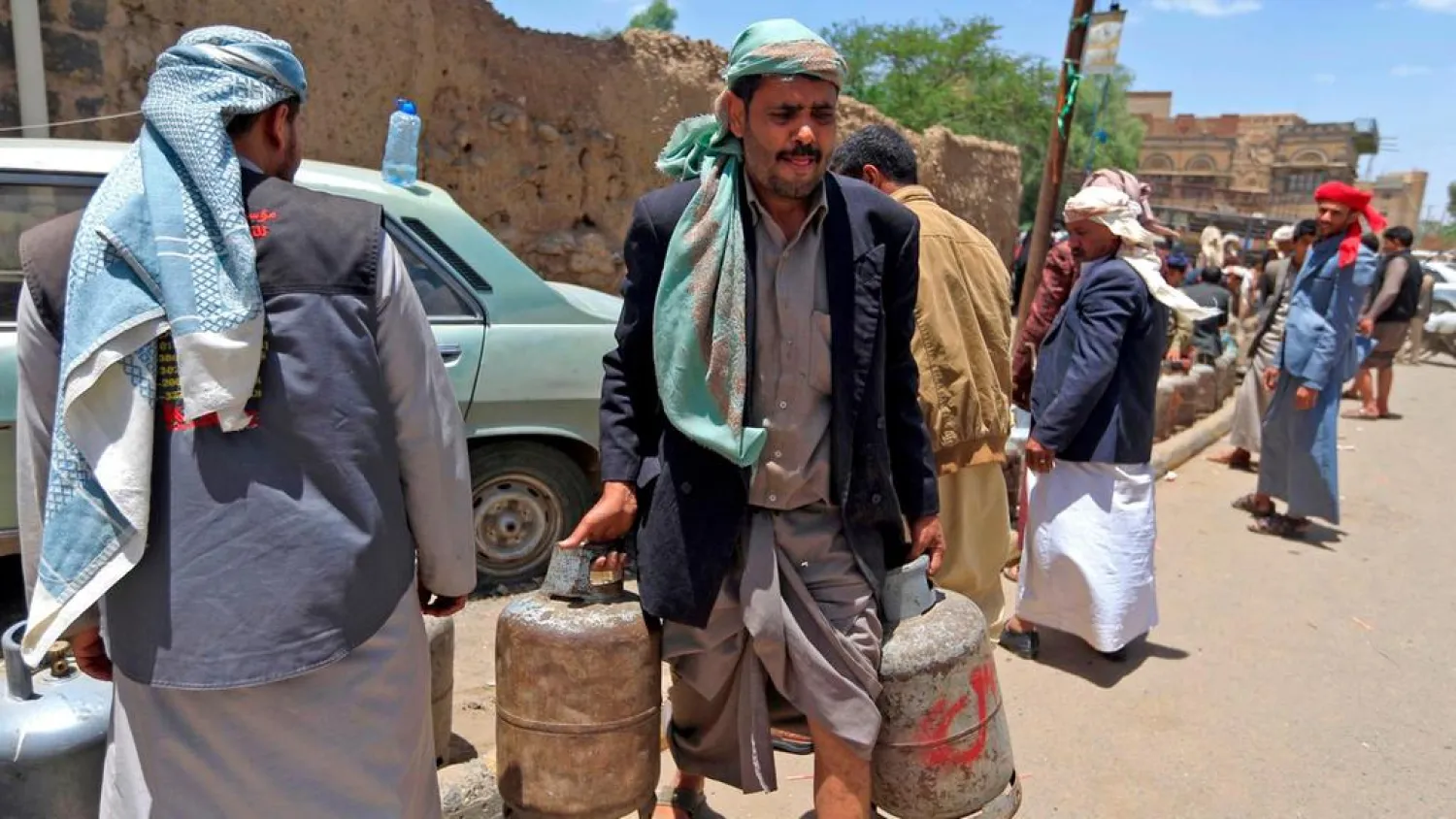The Iran-backed Houthi militias in Yemen have resorted in the country’s rural regions to tribal elders to force them to recruit new members to its ranks. In cities, such as Sanaa, they have turned to “neighborhood elders” to force them to achieve this same goal.
A few weeks ago, however, the militias sacked dozens of elders in the capital for allegedly failing to recruit new members and supporters to join the Houthi cause.
Several of these elders spoke to Asharq Al-Awsat of the great pressure they came under from the Houthis to carry out their sectarian and militant agenda. They revealed that the Houthis would promise them high positions, military ranks and weapons in return for their cooperation. They would resort to intimidation and threats if they failed to yield to their orders.
One of the elders, who spoke on condition of anonymity out of fear of reprisals, said that he served as an officer for an interior ministry agency and also acted as an elder for the neighborhood where he resided in northern Sanaa.
He spoke of how a Houthi “supervisor” of the neighborhood had approached him to attend a militia sectarian seminar. The elder declined the invitation, saying he was preoccupied with his official job. The militant, however, insisted that he attend the event and he was ultimately forced, along with other elders, to head to the three-day seminar.
The lecturers informed the elders that they must forget their affiliation to the General People’s Congress and allegiance to its chief, slain former President Ali Abdullah Saleh, he continued. This was a main condition for the elders to join Houthi ranks.
“We were given a Kalashnikov rifle at the end of the cultural seminar, as well as nearly a month’s salary. They then ordered us to make a tally of the number of residents in each neighborhood. Youths who could potentially join Houthi ranks were to be singled out,” revealed the elder.
“We were forced to attend weekly meetings with the Houthi supervisor of the neighborhood to receive new instructions and listen to a new lecture,” he added to Asharq Al-Awsat.
“I, along with several other elders, refused the Houthis’ instructions. We informed the supervisors that it would be difficult to lure in our neighbors, acquaintances and relatives to join the militias deadly agenda,” he stated.
He was consequently fired from his post at the interior ministry as soon as he made his thoughts clear. He was also later removed from his position as neighborhood elder.
Other elders, however, were enticed by the Houthi promises and agreed to join their cause. Some of them have moved up the military ranks and others have been “promoted” to become neighborhood supervisor.
Elders who have pledged allegiance to the Houthis have also taken on the role of spying for the militias to inform them of who among the population supports or opposes them.
The elders added they are forced to cooperate with the Houthi supervisors in order to protect the residents of their neighborhoods from the militias’ oppression. They explained that they often lie to the Houthis about their efforts to recruit new members, claiming that they are promoting the militias’ ideology and agenda, but the population is refusing to join their cause.
They said that making the Houthis believe that they are cooperating with them is better than antagonizing them.







